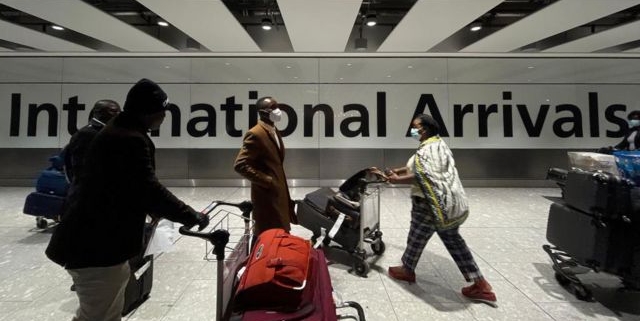Nigerians abroad return home citing mental health, high costs, and unfulfilled expectations
A growing number of Nigerians who previously emigrated in search of better opportunities are now returning home, reversing the popular “Japa” trend that saw over 3.6 million Nigerians leave the country in two years according to Immigration Service data.
Returnees consistently cite unmet expectations, depression, high living costs, and discrimination in their host countries as reasons for their return.
“You just never feel welcomed, whereas in Nigeria, you feel at home,” said Judith Okoli, a nurse who returned from the US after two years. “My rent alone was over $3,000 monthly. By the time you pay for bills, car notes, insurance, and taxes, you begin to wonder, what is the point?”
Dr. Julius Oni, an Associate Professor of Orthopedic Surgery, left Johns Hopkins University after 25 years in America: “I happen to believe that Nigerian patients deserve great care, too. As part of my mission, I have started DOC Medical Nigeria, which offers high-quality musculoskeletal care to the population.”
Mental health concerns featured prominently in returnees’ accounts. Kenny Igho, a mother of two, explained, “I was not happy; I was troubled. I didn’t have peace; I was anxious… I realised I was sliding into a subtle depression.”
Another returnee, Summer Aku, revealed the criticism she faced after making her decision to return to Nigeria.
“When I shared my Japada story, some people said my village people had dragged me back to Nigeria. There was nothing people didn’t say,” she recalled.
Aku expressed frustration over being questioned about her return to the “land of her ancestors”.
Immigration lawyers cite economic pressures, cultural disconnection, and stricter foreign policies as reasons for the trend. Other factors include childcare difficulties and racism. The Idowu family returned after 14 years abroad saying, “America is not the way it used to be. We wanted our kids to grow up with morals and without the fear of gun violence.”
Immigration lawyer Innocent Ekpen noted that President Trump’s policies might influence those returning from the US. He said, “For instance, what President Trump has been doing could be a factor, because he has been sending undocumented immigrants back home, even those that got the document from the Biden administration.”
*“Japada,” a term derived from the Yoruba word for “to return,” is a growing phenomenon where Nigerians who have left the country in search of better opportunities abroad are returning home. This reverse-japa, or “return-japa,” is driven by a variety of factors, including disillusionment with the realities of life abroad, homesickness, and the perception of a brighter future in Nigeria.
